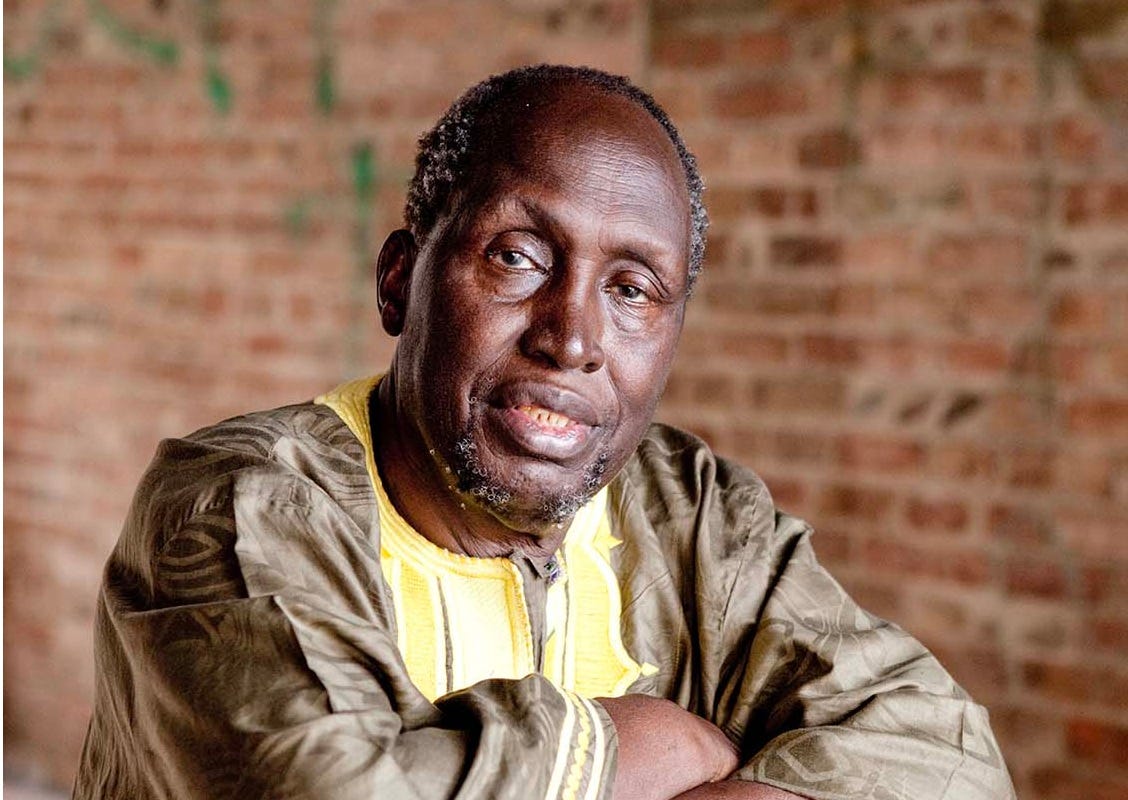Ngũgĩ wa Thiong’o, 1938 - 2025
Aged 87, Ngũgĩ passed away on 28 May in the United States after a long illness.
In 1964, after Ngũgĩ wa Thiong’o had published Weep Not, Child, he entered a club in Nairobi and everyone mistook him for the author of Things Fall Apart.
He later told Wole Soyinka that Chinua Achebe’s name had “haunted his life”. Soyinka said that he, too, had been mistaken for Achebe. All towering figures in their own right, the three were also a tribe: “Writers for whom literature and politics were inextricable,” as editor and author Bhakti Shringarpure says.
Aged 87, Ngũgĩ passed away on 28 May in the United States after a long illness. That he died in the US should be an indictment of our post-colonial states and their inability to live with writers who fight the good fight.
Ngũgĩ suffered great persecution from the Kenyan government for his work, first under Jomo Kenyatta, and then Daniel arap Moi. In 1977 he spent a year in Kamiti Maximum Security Prison for writing, in Gĩkũyũ, Ngaahika Ndeenda (I Will Marry When I Want), which the Kenyatta government considered subversive. His 1981 novel, Caitaani Mũtharabainĩ (Devil on the Cross) was also written there – on toilet paper. In 1982, he was forced into exile when, in London for a book launch, Ngũgĩ learnt of a plot against him back in Kenya.
After his novel Matigari was published in Kenya in 1986, the Moi government confiscated all copies (and tried to arrest Matigari, a fictional character). In 2003, Ngugi returned to launch Mũrogi wa Kagogo (Wizard of the Crow): armed gunmen attacked him and his wife at their hotel, an attack he saw as political.
Ngũgĩ spent his final years teaching in the US, a bitter irony for a writer focused on decolonisation. His most recent book, Decolonizing Language and Other Revolutionary Ideas – out this month – reprises and reinforces this focus. Talk that he walked by writing in Gĩkũyũ for most of his career – English versions of his books are often translations.







Succinct obituary, thank you.